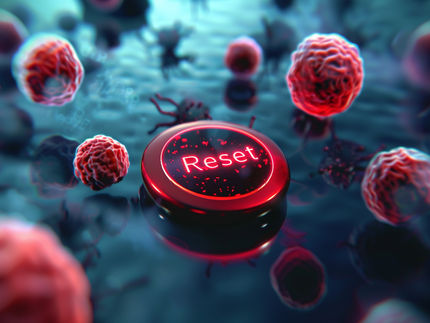PolyTherics to collaborate with UCL to develop a new treatment for ‘sticky blood’ syndrome
Advertisement
PolyTherics Limited announced a new collaboration with Professor Anisur Rahman at UCL (University College London), to use its proprietary site-specific PEGylation to develop a treatment for antiphospholipid syndrome. Professor Rahman and his team have been awarded a 5-year grant of nearly £700,000 from arthritis Research UK to support the work.
Antiphospholipid syndrome (APS), also known as ‘sticky blood’ syndrome, is an autoimmune disease that particularly affects young people and causes blood clots, strokes or recurrent miscarriages. It occurs more commonly in patients with autoimmune rheumatic diseases such as systemic lupus erythematosus. Patients with APS have antibodies to their own phospholipid which bind to phospholipid-protein complexes in the body. This is thought to trigger changes that affect blood clotting. There is no cure for APS; patients are sometimes given anti-coagulant drugs to prevent blood clots but these can have serious side effects.
Professor Rahman and the UCL team have developed proteins that block the binding of anti-phospholipid antibodies to phospholipid-protein complexes in the bloodstream. The next step is to improve the characteristics of these proteins so that they circulate in the body for longer whilst retaining their ability to block this binding. PolyTherics’ proprietary site-specific PEGylation technology is designed to achieve this and its scientists will work closely with the UCL team to produce PEGylated versions of the proteins, which will then be tested by Professor Rahman’s group.
Other news from the department science
Most read news
More news from our other portals
See the theme worlds for related content
Topic world Antibodies
Antibodies are specialized molecules of our immune system that can specifically recognize and neutralize pathogens or foreign substances. Antibody research in biotech and pharma has recognized this natural defense potential and is working intensively to make it therapeutically useful. From monoclonal antibodies used against cancer or autoimmune diseases to antibody-drug conjugates that specifically transport drugs to disease cells - the possibilities are enormous

Topic world Antibodies
Antibodies are specialized molecules of our immune system that can specifically recognize and neutralize pathogens or foreign substances. Antibody research in biotech and pharma has recognized this natural defense potential and is working intensively to make it therapeutically useful. From monoclonal antibodies used against cancer or autoimmune diseases to antibody-drug conjugates that specifically transport drugs to disease cells - the possibilities are enormous























































